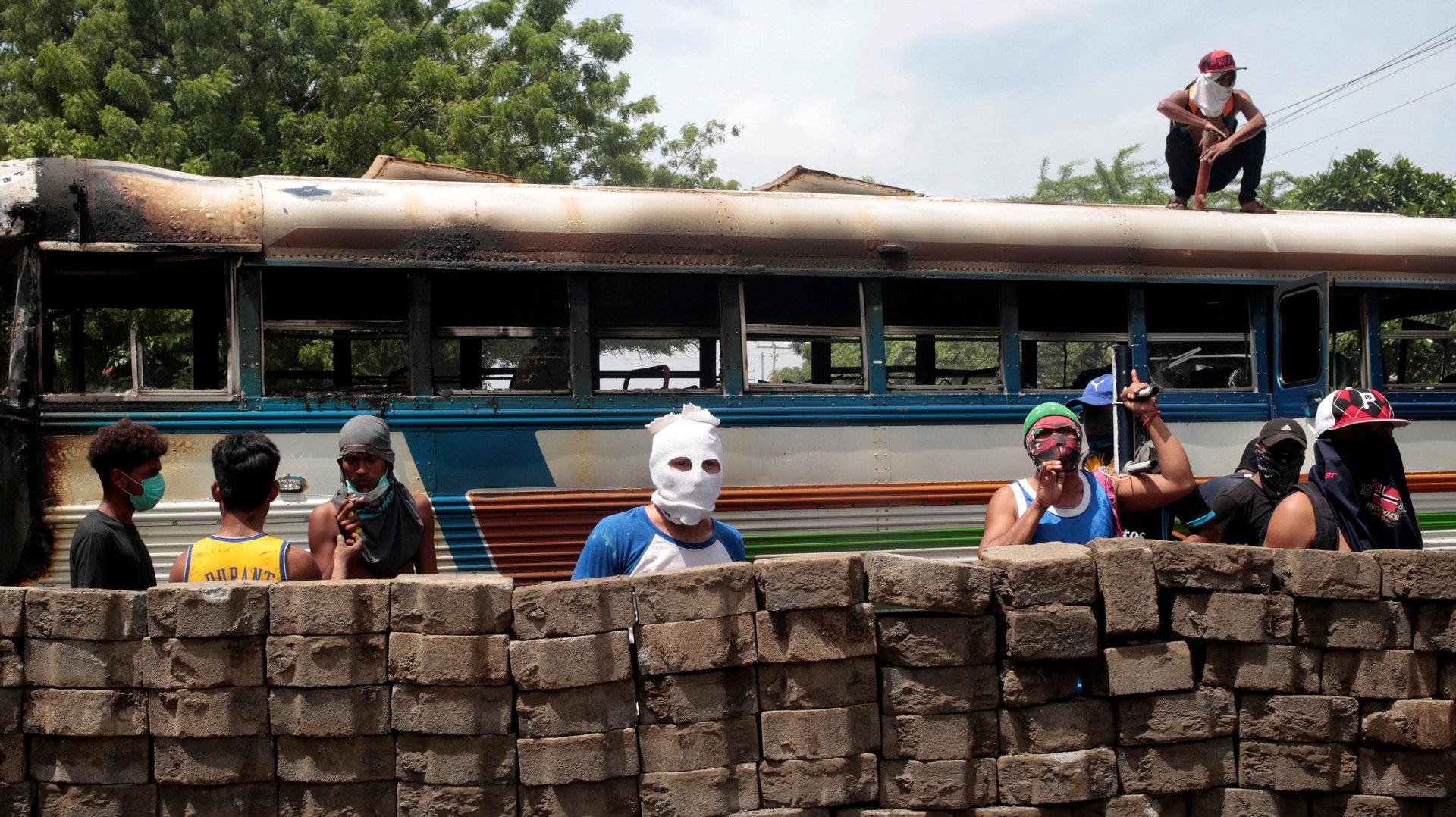Since April, more than 300 people have died protesting in Nicaragua. Here’s why
Clashes in Nicaragua left at least 10 people dead on Sunday (July 15) as the government tried to clear barricades built by protestors in the city of Masaya.


Clashes in Nicaragua left at least 10 people dead on Sunday (July 15) as the government tried to clear barricades built by protestors in the city of Masaya.
The turmoil there started three months ago when workers, pensioners, and students took to the streets to object to an overhaul of the social security system. The plan included increased taxes and reduced benefits.
Days of protests forced Daniel Ortega, the president of Nicaragua, to abort the reform. But rioting continued, fueled by the violent government response, and years of mounting frustration with the president.
Since it started in April, the unrest has resulted in over 300 deaths. And demonstrations have now evolved to become the largest challenge to Ortega’s rule since he retook power over a decade ago.
From democratic insurgent to “elected dictator”
Protestors are asking for elections, which are currently scheduled for 2021, to be advanced and held in 2019. Many are frustrated with Ortega’s moves, in recent years, to further consolidate power.
In 2009, the Supreme Court granted Ortega the right to run for a second consecutive term, countering the constitution. Then in 2014, the government backed a change to the constitution that ended term limits. Ortega is now in his third consecutive term.
There is some historical irony in Ortega being labeled an “elected dictator,” and emerging as the target of democratic protests. As an insurgent in the 1970s, he helped bring down the Somoza dictatorship that ruled Nicaragua for four decades. Ortega then led the country into democracy as its first president in the 1980s.
Earlier this month, Paul Oquist, a minister and a close adviser to Ortega, seemed to indicate in an interview with the Guardian that the president would be open to early elections if protests ended. But just days later, the leader himself denied that possibility.
“Here the rules are set by the constitution,” Ortega said during a speech in Managua. “You can’t just change them overnight.” The former revolutionary then went on to call the protestors fighting for his removal “hate-sowing coup-mongers.”